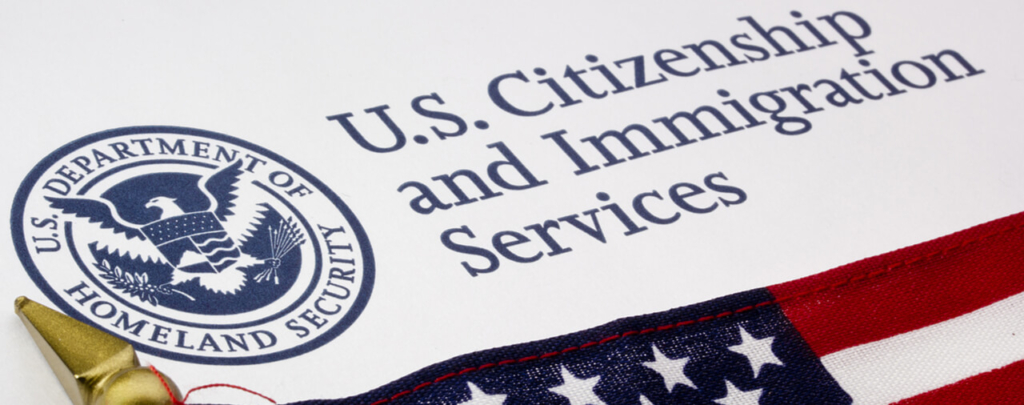- Introduction: Jie Shi Liu v. Sessions, 891 F.3d 834 (9th Cir. 2018)
- Factual and Procedural History: 834 F.3d at 837
- Standard of Review: 834 F.3d at 837
- Analysis and Conclusions: 834 F.3d at 838-39
- Noting Different Rules Outside of Ninth Circuit
- Conclusion
Introduction: Jie Shi Liu v. Sessions, 891 F.3d 834 (9th Cir. 2018)
On June 1, 2018, the United States Court of Appeals for the Ninth Circuit issued a published decision in Jie Shi Liu v. Sessions, 891 F.3d 834 (9th Cir. 2018) [PDF version]. The case involved an appeal from the Board of Immigration Appeals’ (BIA’s) decision denying an alien’s applications for asylum and withholding of removal based on persecution based on political opinion. Specifically, the alleged persecution was based on the alien’s claimed resistance to China’s family planning policy. The BIA rejected the claim after concluding that the alien’s testimony alone was not sufficient to establish eligibility for asylum and withholding of removal without corroborating evidence. In an opinion authored by Judge Richard Clifton, a three-judge panel of the Ninth Circuit denied the petition for review after concluding that substantial evidence supported the BIA’s conclusion and that the alien had been put on notice that corroborating evidence was necessary.
In this article, we will examine the factual and procedural history of Jie Shi Liu v. Sessions, the Ninth Circuit’s reasoning and decision, and what the precedential decision means going forward for similar cases arising in the Ninth Circuit and more generally.
Factual and Procedural History: 834 F.3d at 837
The petitioner, Jie Shi Liu, was a native and citizen of the People’s Republic of China. Liu was married with one son. After his wife gave birth to that son, Liu’s wife inserted a contraceptive ring. However, two years later, she became pregnant again. In order to avoid detection by authorities, she allegedly hid at the house of a third party. After she was discovered at that house by Chinese family planning officials, she was taken to a hospital, where she was subjected to an abortion and forced sterilization. Liu only learned only after the fact that his wife had been taken to the hospital. Upon meeting her there, he learned what happened and then verbally confronted the Chinese family planning officials. For this, he testified, he was detained for almost a month.
Nearly sixteen years later, Liu entered the United States on a B1 nonimmigrant visa. He overstayed his visa. Liu was placed in removal proceedings in 2009 after being charged as deportable under section 237(a)(1)(B) of the Immigration and Nationality Act (INA) for overstaying his visa.
In removal proceedings, Liu conceded that he was removable and applied for asylum and withholding of removal. His claims were based on his having been persecuted based on political opinion, specifically his opposition to China’s family planning policy.
Prior to Liu’s evidentiary hearing before the Immigration Judge, the Immigration Judge informed him that he would need to present corroborating evidence. However, at his hearing on the merits eleven months later, Liu did not present any corroborating evidence.
The Immigration Judge denied Liu’s applications for asylum and withholding of removal, finding that he was not credible on several important issues, and identifying several inconsistent statements made by Liu. The Immigration Judge reiterated that Liu had failed to provide the required corroborating evidence to substantiate his testimony. Thus, the Immigration Judge further found, even if Liu was credible, he would have still failed to demonstrate that he had suffered past persecution. The Immigration Judge also concluded that Liu did not have a well-founded fear of future persecution.
Liu appealed from the Immigration Judge’s decision to the BIA. The BIA dismissed Liu’s appeal without reaching the issue of his credibility. Instead, the BIA concluded that, even assuming that Liu was credible, he “had failed to adequately corroborate his claim with reasonably attainable evidence” (Ninth Circuit description of the decision). The BIA thus agreed with the Immigration Judge’s decision that Liu had failed to demonstrate either past persecution or a well-founded fear of future persecution.
Liu filed a petition to review the BIA’s decision with the Ninth Circuit.
Standard of Review: 834 F.3d at 837
In Song v. Sessions, 882 F.3d 837, 841 (9th Cir. 2017) [PDF version], the Ninth Circuit held that the BIA’s findings in making a determination of ineligibility for asylum and withholding of removal need only be “supported by reasonable, substantial, and probative evidence on the record.” The Ninth Circuit’s standard of review is thus “highly deferential.” However, in Song, the Ninth Circuit also added that, “where the evidence compels the conclusion that the findings and decisions are erroneous, we must overturn the BIA’s decision and grant the petition for review.” Id. Returning to the instant decision, the Court explained that “[o]verturning the BIA’s determination is only merited if the evidence compels a contrary conclusion.”
Analysis and Conclusions: 834 F.3d at 838-39
Liu sought asylum based on both past persecution and a fear of future persecution under section 101(a)(42)(A) of the INA. He sought to show that the persecution was based on political opinion, one of the five grounds under which an individual may seek asylum and withholding of removal. Under section 101(a)(42)(A) of the INA, “a person who has been forced to abort a pregnancy or to undergo involuntary sterilization, or who has been persecuted for failure or refusal to undergo such a procedure or for other resistance to a coercive population control program, shall be deemed to have been persecuted on account of political opinion.” Here, it is important to remember that Liu claimed persecution based on “other resistance to a coercive population control program.”
The Ninth Circuit denied Liu’s petition for review on the basis that he had failed to provide evidence before the Immigration Judge corroborating his ckaun . The Court quoted from section 208(b)(1)(B)(ii) of the INA in explaining its conclusion: “The testimony of the applicant may be sufficient to sustain the applicant’s burden without corroboration, but only if the applicant satisfies the trier of fact that the applicant’s testimony is credible, is persuasive, and refers to specific facts sufficient to demonstrate that the applicant is a refugee.” The Court explained that, under this statute, the Immigration Judge or the BIA has discretion to require additional evidence even if it determines that the applicant is credible. Whether the applicant’s testimony alone may be sufficient for sustaining the burden of proof for asylum is a determination to be made by the trier of fact.
In the instant case, both the Immigration Judge and BIA agreed that Liu’s testimony alone was insufficient for the purpose of demonstrating that he was eligible for asylum and withholding of removal. On review, the Ninth Circuit concluded that “[s]ubstantial evidence supported the determination that Liu’s testimony, even if credible, was not persuasive and did not sufficiently demonstrate eligibility for refugee status.” The Board referred to the following findings made by the Immigration Judge:
Liu admitted that he was not present at the time of his wife’s alleged abortion and sterilization.
Liu testified that he had barely discussed the incident with his wife.
Liu failed to provide evidence to corroborate the allegations about his wife’s abortion and sterilization.
Liu’s testimony about his detention did not include several important details, such as the names of the arresting officials, why he was not charged with a crime, and why he was released.
The Immigration Judge concluded that the above points necessitated corroborating evidence for Liu’s claims. On appeal, the BIA agreed. The BIA stated in its decision that Liu should have provided “at a minimum, a letter from his wife or a friend corroborating the claimed abortion and sterilization she faced and the respondent’s subsequent detention.”
For these reasons, the Ninth Circuit concluded that the determinations of the Immigration Judge and the BIA that Liu needed to provide corroborating evidence were supported by the record. Furthermore, it found that Liu’s failure to submit any corroborating evidence supported the denial of his applications for asylum and withholding of removal.
Liu also argued that the Immigration Judge had failed to give him either notice that he needed to acquire corroborating evidence or time to acquire corroborating evidence. Under section 208(b)(1)(B)(ii) of the INA, where the trier of fact, in this case the Immigration Judge, determines that the applicant must provide corroborating evidence, the applicant must provide the evidence unless he or she “does not have the evidence and cannot reasonably obtain the evidence.” In Ren v. Holder, 648 F.3d 1079, 1091, 1093 (9th Cir. 2011) [PDF version], the Court held that “[i]f corroboration is needed, … the [Immigration Judge] must give the applicant notice of the corroboration that is required and an opportunity to produce the requisite corroborative evidence or explain why that evidence is not reasonably available.”
In the instant case, the Ninth Circuit held that “[t]he record established that Liu was put on notice that corroboration was needed.” Evidence in the record showed that the Immigration Judge told Liu’s counsel in the presence of Liu that “[y]ou’re going to have to supplement this, aren’t you?” Liu’s counsel responded that he had already told Liu “that he would need to come up with some … other evidence.” The Immigration Judge then told Liu that his attorney “would like more time for [him] to provide evidence to support [his] case.” The Ninth Circuit noted that this discussion occurred nearly one year before Liu’s first merits hearing. Accordingly, it found, Liu “had sufficient time to produce corroborating documents.”
However, despite having sufficient time, “Liu provided only his marriage certificate, his wife’s Chinese residency card, and their Chinese household registry record.” The Ninth Circuit stated that “[t]hese documents did not meaningfully corroborate the key factual contentions at issue.”
Finally, the Ninth Circuit moved to determine whether the notice of required corroboration that the Immigration Judge provided to Liu was specific enough to satisfy the requirements identified in the Ren decision. The Ninth Circuit concluded that the Immigration Judge spoke with sufficient specificity. It noted that the Immigration Judge provided notice that Liu’s testimony would not be sufficient and gave him adequate time to gather corroborating evidence. Since Liu did not gather corroborating evidence despite having received notice and been given sufficient time, the Ninth Circuit found no error in the Immigration Judge’s decision to deny the application. Accordingly, the Court held that “Liu’s failure to provide corroborating evidence was not a consequence of a lack of specificity in notice given by the [Immigration Judge].”
The Ninth Circuit did not reach the question of whether the evidence compelled a finding of past persecution because it was not necessary to resolve the case.
For the foregoing reasons, the Ninth Circuit denied Liu’s petition for review. It also explained that because the standard for establishing eligibility for withholding of removal is more stringent than that for asylum, he was also ineligible for withholding of removal by extension of being eligible for asylum.
Noting Different Rules Outside of Ninth Circuit
The Ninth Circuit’s cited to its decision in Ren v. Holder for the rule that the asylum applicant must be given notice that he or she needs to provide corroborative evidence. This rule is not uniform across the circuits. Notably, the BIA held in Matter of L-A-C-, 26 I&N Dec. 516 (BIA 2015) [PDF version] that it disagreed with the Ninth Circuit’s position and would decline to follow it in cases arising outside of the Ninth Circuit. However, the Board also held that the alien should be given the opportunity to explain why he or she could not procure needed corroborative evidence, following the United States Court of Appeals for the Third Circuit in Chukwu v. Attorney General of U.S., 484 F.3d 185, 192-93 (3d Cir. 2007) [PDF version].
Three circuits have explicitly declined to follow Ren and deferred to the BIA’s reading of the statute that notice is not required: Gaye v. Lynch, 788 F.3d 519 (6th Cir. 2015) [PDF version]; Darinchuluun v. Lynch, 804 F.3d 1208 (7th Cir. 2015) [PDF version]; and Wei Sun v. Sessions, 883 F.3d 23 (2d Cir. 2018) [PDF version].
The Ninth Circuit rule highlights the fact that immigration rules may differ by jurisdiction based on different court rulings. Thus, it is important to note while reading the instant case that the notification requirements discussed by the Ninth Circuit do not adhere outside of its jurisdiction. The Ninth Circuit covers Alaska, Arizona, California, the Commonwealth of the Northern Mariana Islands, Guam, Hawaii, Idaho, Montana, Nevada, Oregon, and Washington (state).
Conclusion
The decision in Jie Shi Liu v. Sessions highlights the importance of providing evidence to corroborate an asylum claim when the trier of fact determines that such evidence is necessary. While an applicant’s testimony alone may be sufficient in certain cases, it is not sufficient in all cases. When considering applying for asylum and/or withholding of removal, the applicant should always consult with an experienced immigration attorney in the area of asylum law. An experienced attorney will be able to assess the specific case, determine what evidence may be necessary and how to present the case, and guide the applicant through the process.
To learn more about asylum and refugee protection, please see our growing selection of articles on site [see category].



-1024x405.jpg)
-1024x405.jpg)
